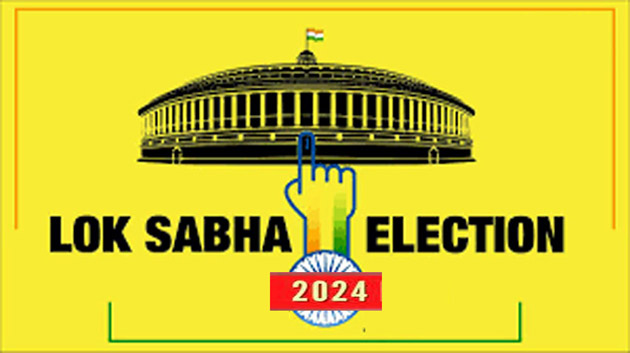By Dr. Gyan Pathak
The indications available from the ground level suggest Delhi is heading for a very tough contests in all its 7 Lok Sabha constituencies. The intermittent political clashes between the AAP led State Government and BJP led Centre in the last five years on several issues affecting the welfare of the people of the state have made citizens to think twice before they vote. It has made the political situation tense.
BJP’s stake is too high this time since the party and the PM Narendra Modi are seeking for their third term. BJP had won all the 7 Lok Sabha seats from the state in 2019 polls, and it can’t afford to lose any seat this time. Congress-AAP alliance has made the BJP stressed. People in general also are not happy with the Centre’s interference in Delhi’s welfare schemes, as well as the sitting BJP MPs.
Neither the Central BJP leadership nor the state BJP leadership are sure about winnability of sitting BJP MPs. This is the primary reason for which Central BJP leadership had asked the state BJP leadership to make a list of probable BJP candidates, which the state leadership has made and submitted on February 20 to the Central leadership. As it has been reported the list contains about 30 probable BJP candidates. It is sure from the list that BJP is keen to field some new candidates to ward off any anti-incumbency against PM Narendra Modi by entirely shifting the blame to local anti-incumbency. BJP election planners believe that it may leverage PM Modi’s popularity.
BJP’s probable candidates list was submitted by the state unit during the deliberations with the Central leadership that has called its informal meetings with leaders of 15 states which included Delhi. It was a review meeting on the eve of party’s first Central Election Committee meeting scheduled for February 29. The review meeting was an exercise for on-the-spot assessment, feedback from the local units and findings of surveys commissioned by the party, which also involved weighing the prospects of winners from the last Lok Sabha elections and their potential replacements. BJP president J P Nadda, Union Home Minister Amit Shah and the General Secretary (organisation) BL Santhosh also took part in the deliberations.
Sources said that there are names of about 30 probable BJP candidates in the list submitted by the Election Committee of the Delhi BJP. The sitting BJP MPs are Harsh Vardhan from Chandni Chowk, Manoj Tiwari from North East Delhi, Gautam Gambhir from East Delhi, Meenakshi Lekhi from New Delhi, Hans Raj from North West Delhi, Parvesh Verma from West Delhi, and Ramesh Bidhuri from South Delhi.
However, the probable BJP candidate list submitted had the names of the External Affairs Minister S Jaishankar, Union Housing and Urban Affairs Minister Hardeep Singh Puri, and Bansuri Swaraj the daughter of late BJP leader Sushma Swaraj for New Delhi seat along with sitting MP Meenakshi Lekhi.
It has also been reported that BJP is considering to change two-timer MPs across the country. In this backdrop it should be noted that except for East Delhi MP Gautam Gambhir and North West Delhi MP Raj Hans, the remaining five constituencies have MP representing for the second time.
The BJP’s probable candidate list including about 30 names for 7 seats shows that the party is in political distress, though it had recently launched an outreach programme in the state. BJP workers have reached out to people for feedback on the performance of their sitting MPs. The list was prepared after the party workers submitted their feedback. Sources said that the BJP is set to replace its three sitting MPs out of four. There is great internal struggle within BJP and various groups want their own candidates. BJP seems to be heading for a bitter infighting which Central leadership is trying to avert.
AAP has already announced its four candidates while Congress is yet to announce its candidates on three seats as per the Congress-AAP seat-sharing arrangement. Delhi Pradesh Congress has just stepped up efforts to prepare its 50-point manifesto for the state.
Two weeks from now is crucial for Delhi during which full list of candidates would be announced and the key issues would emerge. Unemployment, development, social welfare, and hate politics are being discussed now at the grassroots level which perhaps shape the final outcome. (IPA


